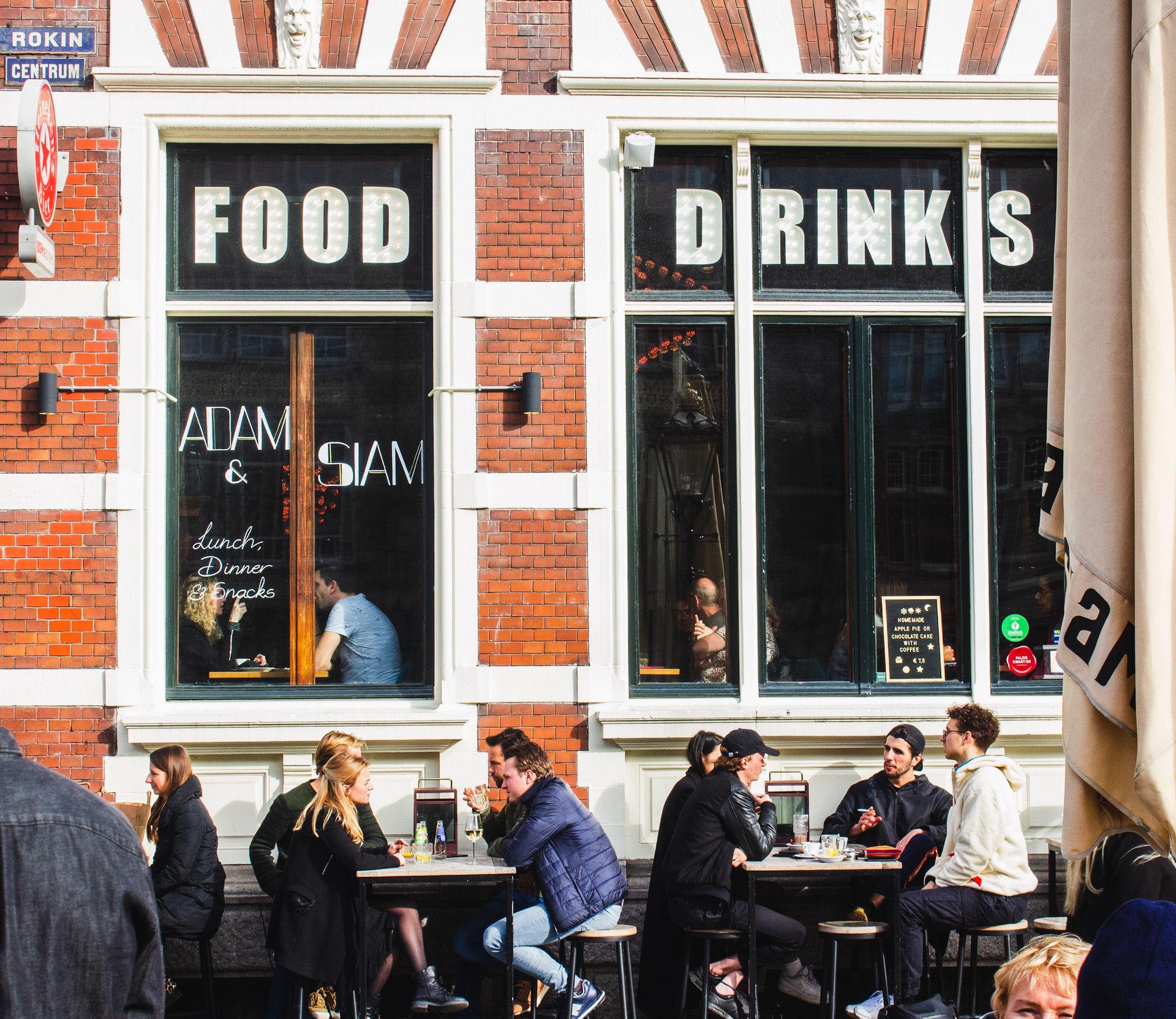Common Ways Restaurants Are Picking Back Up After COVID Shutdowns
COVID-19 is, without doubt, the worst thing to hit our world in recent memory. The pandemic’s far-reaching effects have been felt across many areas of life, from health to business. All industries in the business world have been undoubtedly affected by the pandemic, and the restaurant industry is no exception.
Nevertheless, many restaurant business owners are successfully restoring their operations gradually. These entrepreneurs rely on tactics that are bringing stability back into their businesses and positioning them for greater post-pandemic success. Below are some specific methods that restaurants are using to revive their operations after the numerous lockdowns.
Putting business finances in order.

Many restaurants are back up and running after resolving their business finance issues, brought on by the pandemic. This has helped to ensure their smooth transition from total lockdown to business as usual. These restaurants are drawing up new budgets for expenses like rent, utilities, and food orders to give them a fair idea of what to expect cost-wise.
These businesses are also tracking cash flow to monitor how much money is coming in and going out, shaping both present and future strategies. Plans and budgets to rehire employees are also in order since some businesses laid workers off to cut down costs.
Additionally, restaurants are removing any bottlenecks present in their cash transaction processes. Many companies end up on the MATCH list occasionally, making it harder to run their businesses. Since these restaurants usually accept credit and debit cards online and at their physical stores, appearing on the MATCH list is a considerable drawback that they’re quickly resolving while resuming operations. These restaurants are joining several other companies to recover their merchant accounts, making their companies fully ready for business.
MasterCard maintains the list to inform acquiring banks about high-risk merchants with a history of a high number of chargebacks and illegal transactions. Appearing on this blacklist can be frustrating since your business is classified among high-risk accounts, cannot handle credit card payments, or open a new merchant account. However, the services of a great lawyer can be instrumental in getting you off the list. Experienced law firms such as Global Legal Law Firm are helping with this need.
Global Legal Law Firm helps MATCH list merchants navigate their MATCH list credit card processing issues. They help merchant account providers with MATCH files get off the MATCH list, making businesses eligible to handle credit cards in no time. They operate by gathering information that triggered your blacklisting, irrespective of whether you were put on the list for identity theft, fraudulent activity, or high chargeback volumes.
This information includes your agreement with the credit card company that put your business on the list and any other relevant documents related to your previous processor, additional information about the principal owner, and any counterfeit charges. Then, they work with your past processor to facilitate clients’ removal from the MATCH or terminated merchant file (TMF) list, irrespective of their business type. This way, account holders can open new merchant accounts, recover old accounts, and be in good standing with major credit card companies like American Express, Visa, and Discover.
Preparing premises for business as usual.
As part of their reopening plans, many U.S food companies ranging from major brands to small startups, are prepping their premises for full operation. Major cleaning to remove all possible contaminants from the premises is frequently conducted to ensure staff and customer safety. Besides cleaning away dust and maintaining spick and span floors, regular disinfection of tables and countertops is also popular to keep their premises COVID-free.
Additionally, due to the lengthy lockdown period, many essential kitchen appliances were out of use, causing several of them to break down or develop faults that hinder the restaurant’s smooth operations. Repairing these appliances quickly and efficiently is undoubtedly necessary to resume smooth operations. Excellent appliance repair companies such as Oregon Appliance Repair are helping with this need.
They’re a Bend appliance repair company with factory-trained and certified technicians that provide clients with appliance repair, maintenance, and installation services. Oregon Appliance Repair offers a wide range of services such as washer repair, dryer repair, oven, refrigerator, HVAC, microwave, and ice maker repairs. Their expert technicians can handle any appliance problem regardless of the brand or model promptly and at a fair price.
What’s more, they’re a family-run and managed local business, prioritizing top-notch customer service, and workmanship on any project they undertake. They also have extensive experience in the appliance repair industry, servicing clients in the Bend, Portland, and central Oregon areas for over 30 years.
Restocking on key supplies.
Apart from restaurant equipment, food businesses need other essential supplies that make their operations functional. Many restaurants likely went out of stock on many essential ingredients and supplies during the lockdown period. Disposable beverageware is one of the essential things that restaurants are restocking on to cater to customers’ increased need for deliveries.
Also, wines and other beverages that went out of stock are being replenished to make these restaurants capable of providing customers with the best dining experiences. Bottled water is another essential component that all restaurants will undoubtedly need to stock up on as part of their reopening plans, and brands such as Labrador Springs can help with this need. They have a good reputation in the bottled water industry, serving as a reputed distributor of water products like gallons and bottles of premium water brands across Canada.
Optimizing food delivery operations.
Off-premises sales in the food industry hit a record high during the lockdown period, and many businesses are optimizing their delivery business to cater to this new trend. Despite the easing of rules in the United States and several countries worldwide, many customers still prefer their meals delivered due to safety concerns.
Consequently, restaurants that regarded delivery as not so essential are now restructuring their operations to make deliveries prominent. These companies are increasingly investing in cost-effective packaging and streamlined processes that make pickup and other delivery forms as efficient as possible.
In conclusion, businesses across several industries have been greatly influenced by the coronavirus pandemic. The restaurant business is no exception, and the above-listed points are but a few of several ways these companies are picking back up after pandemic-induced prolonged shutdowns.



